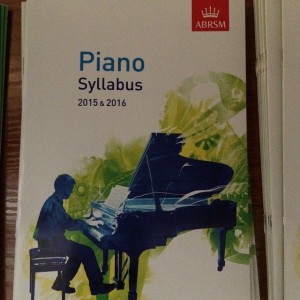Tips for effective piano practice

We are an official ABRSM exam venue
Learning to play the piano takes time, enthusiasm, motivation and lots and lots of practice. This practice can take three main forms:
- You’ll practice pieces of music you are currently learning
- You will practice techniques, including scales, arpeggios and chords
- You might run over older pieces to improve your confidence and dexterity
We all lead busy lives, so it’s hard to fit practice time in amongst everything else. However, it’s important that practice is high up the agenda so when it comes to your next lesson, you can show the improvements you’ve made through working hard and focusing on your technique.
Time and motivation
Piano practice should never be something that you dread, but if you are juggling a working life and the needs of your family, fitting in just a short amount of time to yourself to play the piano can be difficult.
If you don’t make the time you have productive and enjoyable, you’ll soon lose motivation.
The key here is to make some time that is yours and making it an immovable commitment in your daily or weekly life.
Putting a piano practice timetable together
Devise a practice timetable and whatever else happens – bar an emergency of course – don’t be derailed or convinced to drop your scheduled practices.
To plan a really solid, effective timetable, think about:
- being organised; practice time should never be crammed in shortly before a lesson
- structure; this way you can measure improvement and have a purpose to each session
- technical work; always include some work such as scales
- learn succinctly; don’t be tempted to rush through a piece, learn in small sections
- time: you only need about 15 minutes every few days
The feeling of achievement
Setting up a timetable to practice will mean that you can take bite size chunks of work and combine them between your lesson times. When you next meet your piano teacher they will be able to see your improvement and understand the efforts you’re making to be organised. Regulating practice, and prioritising it, is the best way to make your sessions effective.
Practice Goals
Through structuring each practice, it’s possible to set goals and targets set with your tutor. You can have short term or long term goals; these may be to have perfected your current arpeggios by the next lesson, or to have taken your Grade 3 exam within 6 months and achieved a distinction. Your teacher’s expertise will guide you.
Technical work may seem repetitive and monotonous, but it’s important to learn to play all fingers at the same time. Technical work is the way to improve these areas.
When you have a new piece of music to learn, it’s very easy to rush in. Work up to playing the whole piece over a number of weeks, with lessons in between to support you, rather than tackling it in one go. It helps to find a piano teacher who can tell you what you need to spend time on and what you’re naturally good at.
Practice to Perfect
If you are looking for a piano teacher to help you with a practice timetable, or if you’re you’re self-taught and need someone to give structure and feedback, talk to the experts at Piano Workshop. We’re an ABRSM exam venue, and we can help introduce you to a piano teacher that will set up a perfect practice regime.

